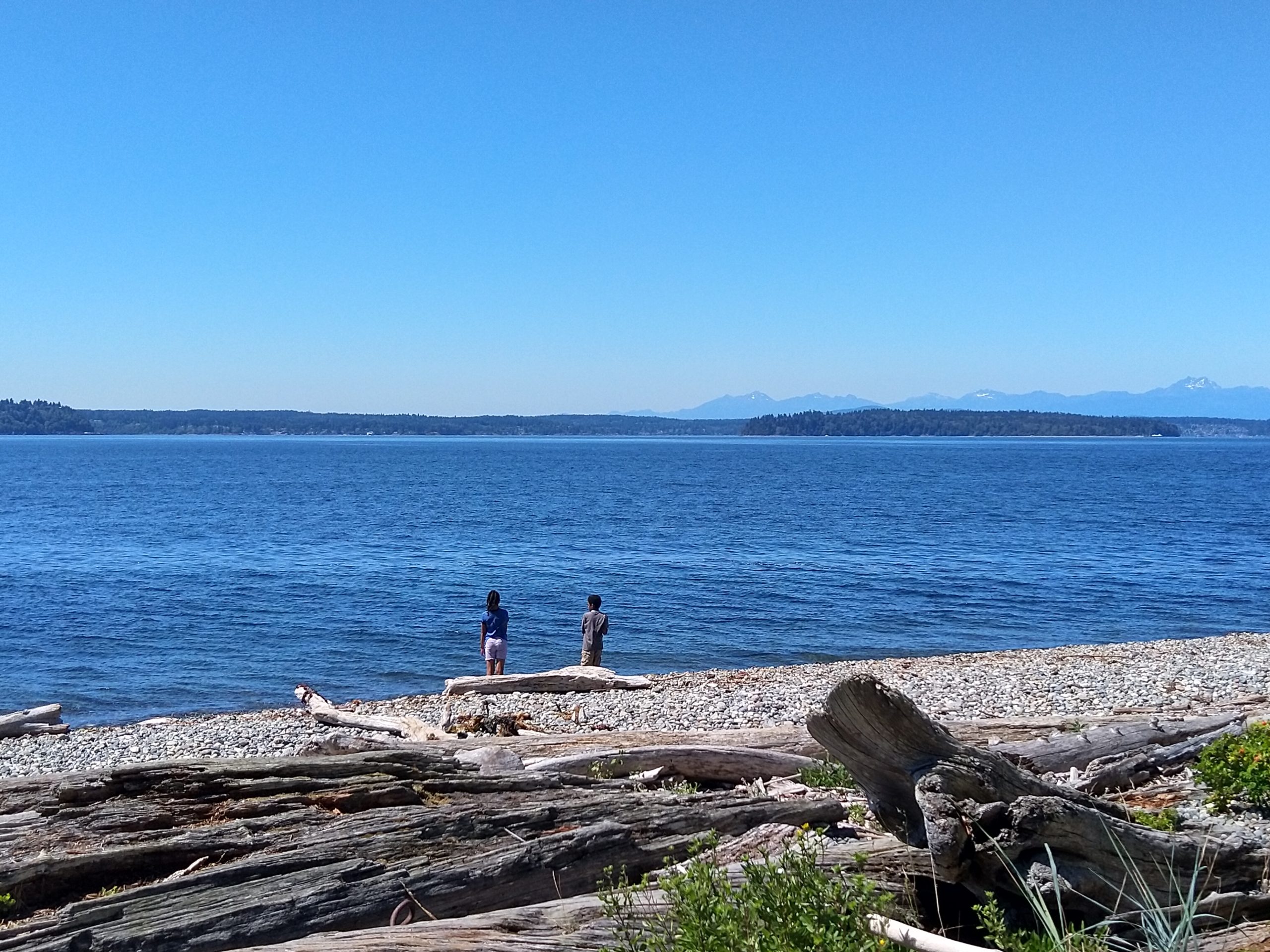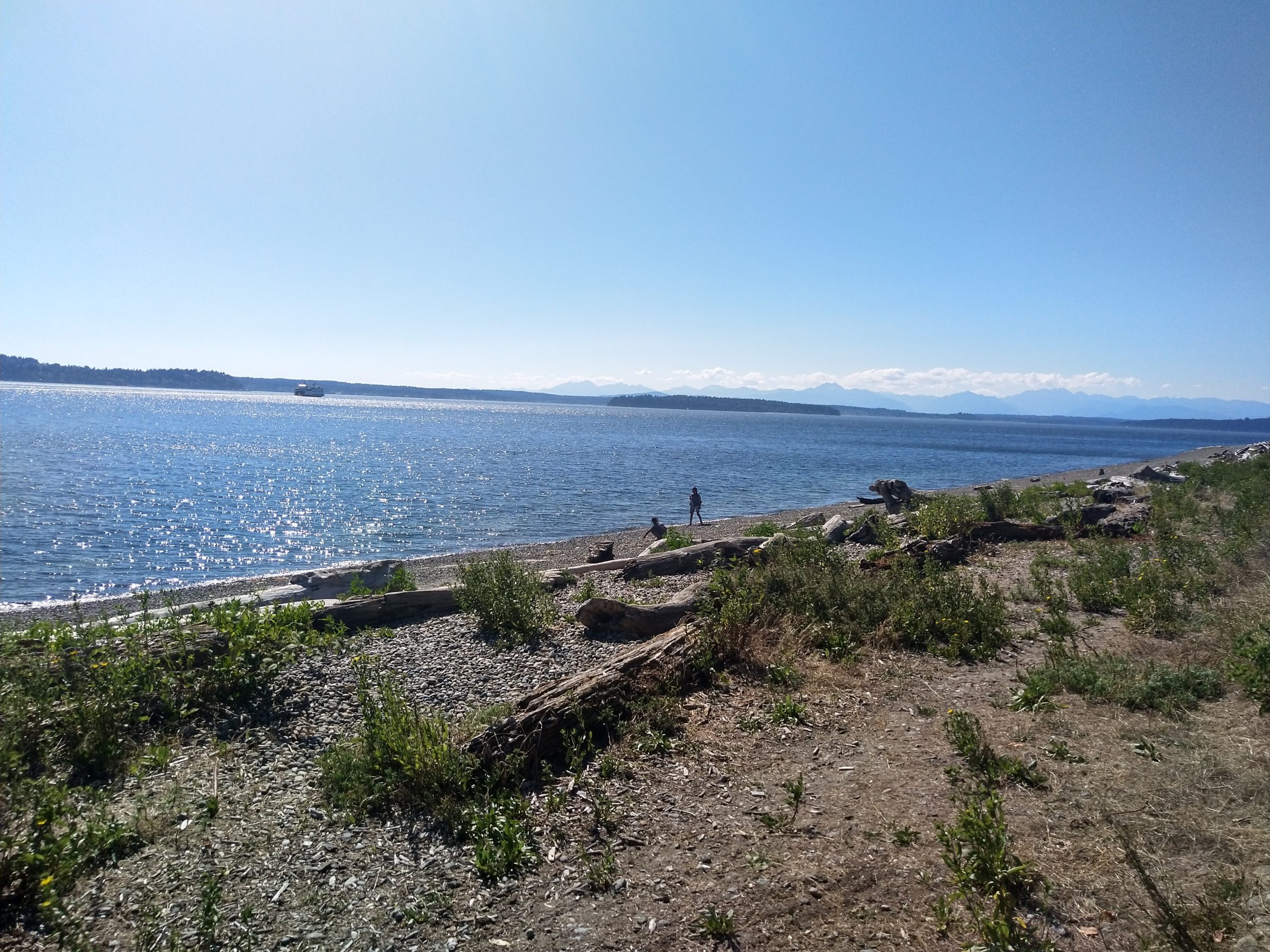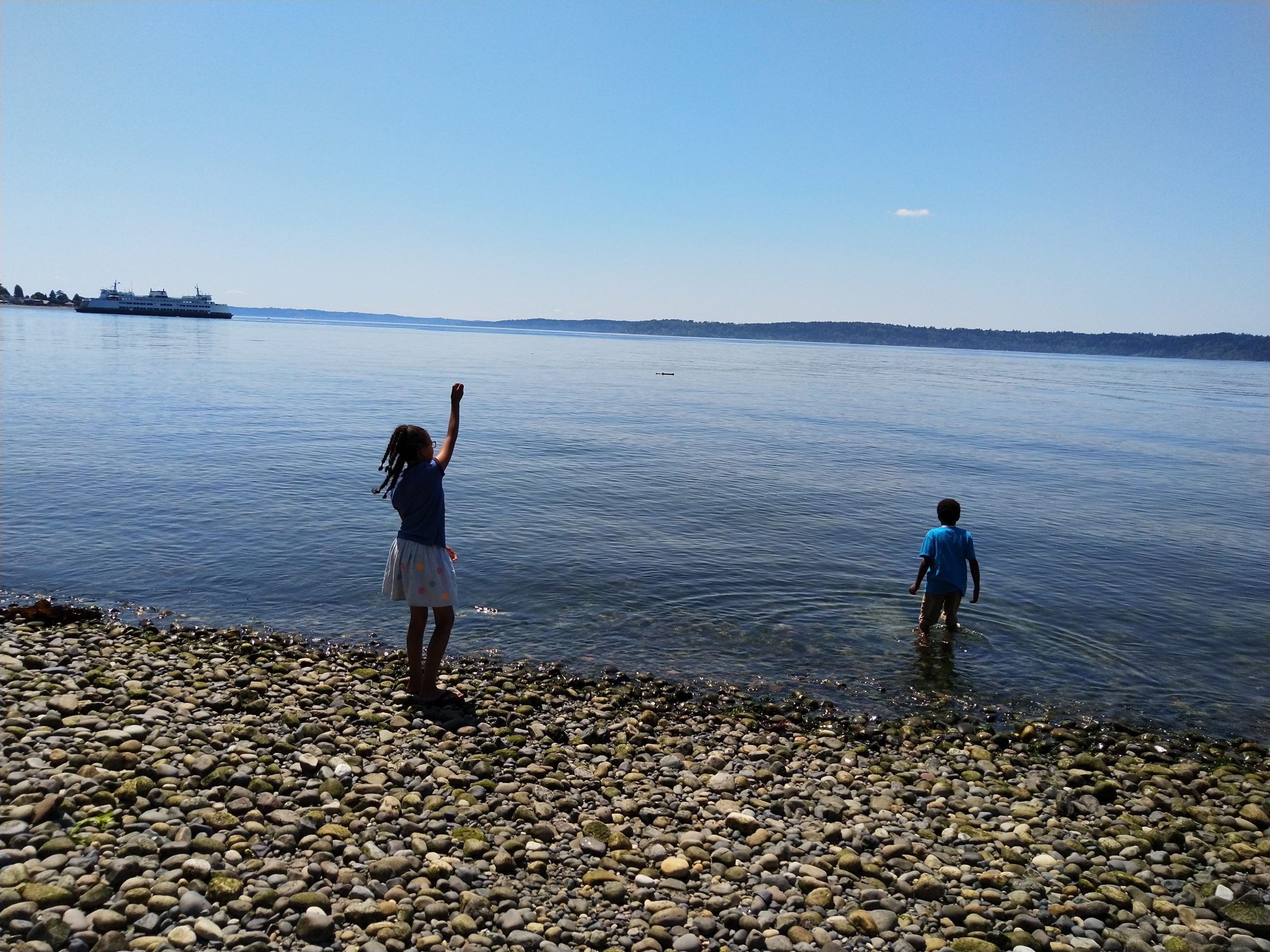What does it mean to love a place?
In 1936, my paternal grandparents moved to Seattle. They were young and Black, fleeing the poverty and various forms of terror in their home state of Kansas. They would experience both (poverty and terror, that is) in their new home, but they did not know that then.
My Grandpa Marcellus arrived first, riding the rails west and then, eventually, north. He worked as a day laborer and then as a dishwasher at two different restaurants (including at the Black-owned China Pheasant) until he earned enough money to send my Grandma Bernice a ticket. She left behind her six beloved sisters—whose names I heard almost daily growing up—and everything she knew to travel to what might as well have been the end of the world.
Marcellus and Bernice married in Seattle, at Mount Zion Baptist Church. My dad, their second child, was born at Harborview in 1939. He knew a Seattle before the Space Needle, before I-5, before so many of the corporate behemoths that have come to define it.
I have always been simultaneously proud of my family’s deep roots in this place and ashamed of their participation in the colonial project that made it what it is. I understand that my grandparents were also victims of white supremacist settler colonialism, doing what they could to survive. They did not have the capacity to consider the impact of their presence on the original people of this land. I grieve for the Duwamish people and for my grandparents, whose own ancestral trauma required them to make their way in someone else’s homeland.
I hate what Seattle represents: genocide, Native erasure, Earth as “property” to be bought, sold, and exploited for profit. I recoil at the stories of razed hills and inconveniently meandering rivers filled with dirt to suit commercial aims. And yet, I am grateful that my family came here, and that they had some part in building the city that is my home.
What does it mean to love a place?
Like my father, I was born here. I have lived away—two years in Morocco as a child and eight years in Houston as an adult—but I have spent 38 of my 48 years within 15 miles of my first neighborhood. My family didn’t give me much in the way of culture or community or tradition or even a sense of self. But damnit, they gave me this place.
Alki Beach and Puget Sound. The Olympics. The 54 and the ferry. The 2. The Monorail. Air that smells of saltwater. Slugs and mist and mildew. Tahoma, mother of waters. Sword ferns and Oregon grapes. Supersonics. 1250 K-Fox. Chubby and Tubby. The Monroe Fair. Madrona Park. The Market. Gloomy Junes. Dark Decembers. Husky Deli. Cottage Lake. Roger’s Thriftway. The Fun Forest. The Facts building. Tahoma, Tahoma, Tahoma, the mountain that comes out.
What does it mean to love a place?
In the summer of 1990, right before I moved away for college, the Goodwill Games came to Seattle. For the first time in my memory, there was heavy traffic at all times of day instead of just during “rush hour.” Back then, I thought all those extra cars were temporary. They never left.
When I returned to Seattle eight years later, everything was different—not in a “change is constant, don’t get set in your ways” kind of way, but in a pollution and traffic, gentrification and displacement kind of way. Every day, as I drove to work, I felt uneasy. I felt like I was contributing to something brutal, to a mindless, self-centered death making. That was when I decided to stop driving.
What does it mean to love a place?
I never love Seattle as much as when I am on the ground, walking to, riding on, or waiting for the bus. When I ride, I am part of the living, breathing organism that is my city. I am invisible, unnecessary, and irrelevant. But somehow, at the same time, I belong.
What does it mean to love a place?
In November of 2015, our little family volunteered to plant trees in a wooded area near the kids’ school. I didn’t expect to enjoy it. (I suffer from Raynaud’s and am generally cold-natured, so I rarely schedule compulsory outdoor time on November weekends.) But I was hoping to connect my children to their community. I wanted them to put their hands in the dirt—to plant something that they could watch grow over the years.
Though I wouldn’t say I had a good time, I found moments of joy on that day. And my children had a blast. They named every single tree they planted. They remembered their locations and checked on them at least once a week. During the dry summer months, they hauled buckets of water from the faucet at the front of their school a full quarter of mile into the woods to keep the baby trees alive.
Years—and many trees—later, they still know all the names of those first babies, and they still check on them regularly. If my children are granted the gift of old age, and if the trees (and our species) manage to survive that long, I hope they will bring their grandchildren to admire them.
What does it mean to love a place?
We’re told that Seattleites love nature. After all, they’re always outside, hiking and boating and skiing and climbing and camping. What I see is a professed love that manifests as a need to consume, commodify, and conquer, not as reverence or gratitude or stewardship. “Nature” as entertainment, adrenaline, escape, instead of the source of our very lives.
What if loving this part of Earth meant that, instead of asking what it could do for us, we asked what we owed back? What if it meant accountability and not unfettered access?
What does it mean to love a place?
For at least 15 summers, I have felt uneasy. I don’t need scientists to tell me the climate is changing; I can see it with my eyes and feel it in my bones. Summers are hotter and longer. Mountains are barer. Madrone trees are stressed. Salamanders and slugs are a rare—instead of regular—sighting.
Other people celebrate the warmer summers, as if weather is some sort of ambiance that exists to please humans. But I feel every degree like a diagnosis. Seattle is dying, and not because privileged people can no longer make it through the day without being reminded of suffering. Seattle is dying because we have finally asked too much of the land that supports us.
The smoke that at this very moment surrounds us is our invitation to see clearly. What are we going to do about it?



